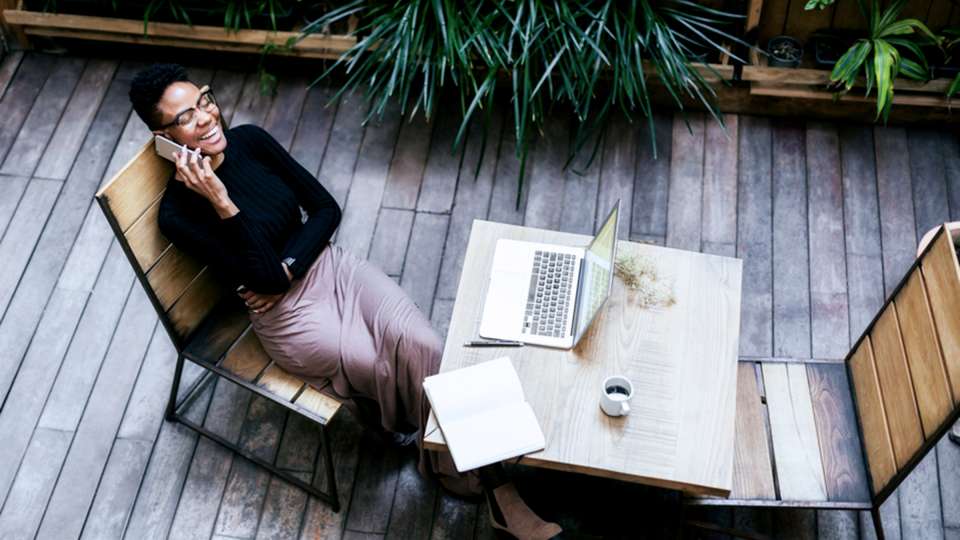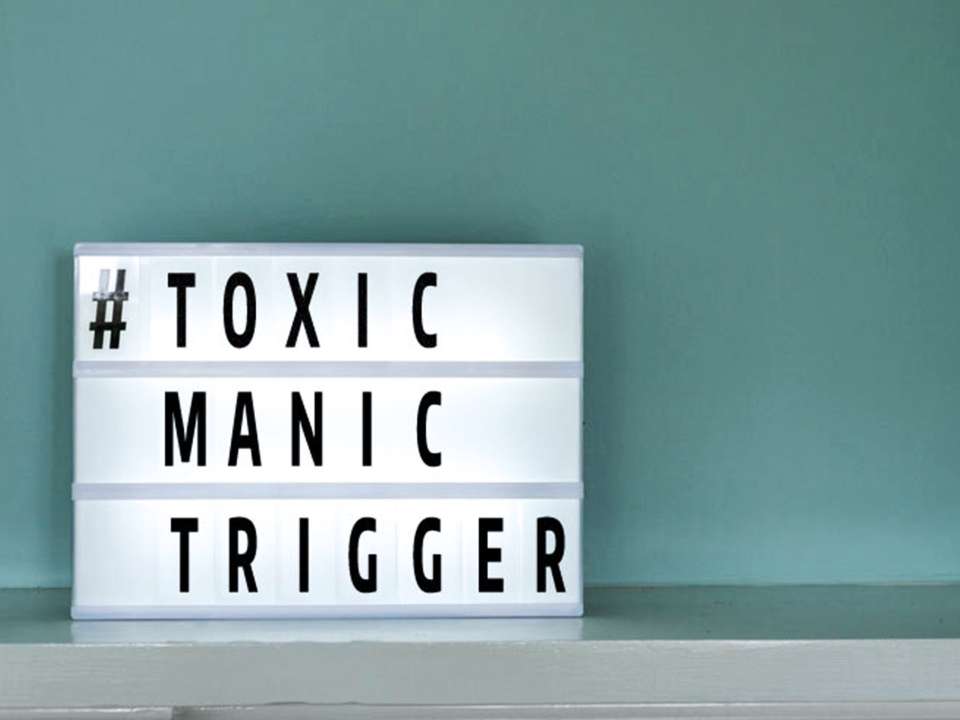
Life as you once knew it has come to a screeching halt, courtesy of the coronavirus pandemic. Now instead of heading to work and getting together with friends, you’re making do at home with you, your sweatpants and Netflix.
While staying at home and away from others — aka social distancing — is crucial to help flatten the curve and save lives, it can also lead to increased anxiety from the associated stress and feelings of isolation.
“We’re choosing as a society to prioritize the protection of health and life by staying at home, and that’s the right thing to do, but we have to acknowledge that this choice will come at a detriment to other parts of our well-being,” explains Julia Kocian, a licensed clinical social worker and mental health counselor who sees residents and fellows as part of University of Washington School of Medicine’s Graduate Medical Education Wellness Service.
To make sure you’re taking care of yourself, Kocian offers these self-care tips during this uncertain time — sweatpants completely optional.
Recognize and nurture emotion
During any difficult time, it’s important to acknowledge your feelings instead of glossing over or trying to push through them.
“You’re going to experience worry and grief over losses large and small,” Kocian says. “So when a heavy emotion is coming to the surface, we want to name it and allow space for our emotions to exist.”
She recommends using a technique developed by psychologist and meditation teacher Tara Brach called RAIN: Recognize the emotion. Allow space for it to exist. Investigate your feelings with kindness. Nurture yourself with self-compassion.
For example, if you find your anxiety skyrockets after reading COVID-19 news updates, don’t berate yourself about it. Acknowledge that you’re feeling worried about something that’s completely out of your control, and then remember that you are not your emotions. Instead, you can find comfort in something that is within your control, like a favorite activity you can do at home.
“You can’t control another person or how you’re feeling, but you can control your little piece,” Kocian explains.
Build a routine
While the ups and downs of this pandemic make it difficult to predict anything, creating some semblance of a routine for yourself can help.
“You’re being knocked over the head with uncertainty and what’s out of your control, so focus on the parts that you can control,” Kocian says.
She suggests providing yourself with structure throughout the day, such as when you eat meals or when you wake up and go to bed. If you’re able to telework, create clear boundaries for when you’re working and when you’re off the clock. And don’t forget to incorporate moments of familiarity into your everyday life.
If you always used to hit the gym after work, stream an online fitness class at the end of your day instead. Or if you used to meet up with your friends for brunch every weekend, schedule a video chat with them while enjoying a batch of homemade pancakes.
“Whatever gave you joy before all this began, I’d recommend looking to the same general activities, however modified they need to be,” Kocian says.
Be realistic and flexible
While turning to the familiar can be comforting, that doesn’t mean everything will be exactly the same as it was before — and that’s OK.
“You may need to adjust your expectations,” Kocian notes. “When the situation is really challenging, look for ways to make life just a little bit easier and practice forgiveness for yourself and others.”
Maybe you haven’t changed out of sweatpants in days. Or maybe you’re letting your kids watch more TV so you can have some quiet time. It’s more than fine to be flexible with your previous standards and allow yourself those moments of comfort and relaxation.
Reach out to friends and family
While social distancing does mean physical separation from coworkers, friends and family, it doesn’t mean being socially cut off from them.
Technology makes it easier than ever to reach out to loved ones across the world. While a video chat isn’t quite the same as physically seeing or hugging someone, it can be a worthwhile substitute during this difficult time.
Maintain a connection with people you care about — whether that’s via phone calls, video chats, emails, texts or handwritten letters — to prevent feelings of loneliness and isolation. Having this social outlet can remind you that you’re not alone, even if you’re physically by yourself.
This is especially important if you’re someone who has struggled with addiction in the past, Kocian says.
“If you’re someone in recovery, working really vigilantly against loneliness and boredom will be important,” she explains. “My hope is that people in recovery are able to increase their attendance to virtual support meetings and to stay connected to contacts like a sponsor.”
Limit your news intake
While technology is wonderful for keeping you connected to people you love, it’s not so wonderful when it comes to feeding your anxiety. For some people, scrolling endlessly online to read up-to-the-second reports about the pandemic situation only makes them more stressed and worried.
“People can gently monitor what’s driving them to consume this sort of news,” Kocian says. “Your anxiety may drive you to prepare, so you seek out information. This can feel relieving in the moment, but it ultimately leads to an increase in stress and anxiety. Instead you might consider how much news you really need to be informed and educated and then stop there.”
Set boundaries for yourself on how often you’ll watch or read coronavirus news each day. Go on a social media hiatus. And stick to a small list of trustworthy publications and organizations, like the Centers for Disease Control and Prevention or Public Health — Seattle & King County, instead of scrolling for hours.
Get moving
While stay-at-home orders do mean you should avoid nonessential travel, they don’t mean you have to remain at home. You can still go for a walk, run or bike ride outside as long as you’re staying a safe distance from others.
Going outside — yes, even when the weather stinks — has been shown to reduce anxiety and depression as well as encourage better sleep and immune function. On top of that, research shows that exercise can improve your mental health. Even gentle activities like stretching or walking are beneficial.
What does that mean for self-care in the age of social distancing?
You should try to fit in movement, exercise and bodily relaxation wherever and however you can. This can not only help you feel better physically, but it can also improve your mood and decrease stress.
“You might notice you’re getting nervous and tense and wary,” Kocian says. “That’s because we often carry collective anxiety and stress in our physical body. If you can, try to relieve tension when you notice it by practicing bodily relaxation and deep breathing.”
Eat nutritious foods (but let yourself indulge too)
Along with movement, the food that you eat is also linked to your mood, anxiety and mental health. For example, researchers know that healthy eating can boost your resiliency.
That doesn’t mean, however, that you should immediately switch to a completely plant-based diet or cut out anything that you deem to be unhealthy. After all, your sugary, salty and less-than-nutritious food cravings are often in response to an emotional need.
Instead, try to maintain healthy eating in a way that makes sense for how you normally live. If you’re a person who enjoys cooking healthy meals at home, then try your best to stick with that. If takeout food is more your style, then take small steps to incorporate more nutritious ingredients into your diet.
“The set points of what is considered healthy are different for different people,” Kocian explains. “You should measure everything against your own healthy baseline.”
That means if you decide to order a pizza one night instead of making a salad for yourself, well, that’s OK. Be realistic about what you can expect during this situation, practice self-compassion and try again next time.
Find the silver lining
As wild as it may sound, focusing on the positives in what can feel like a period of endless gloom and doom can actually help you feel better about your situation. Research shows focusing on the pros over the cons benefits your physical and mental health.
“Obviously there are going to be moments of gigantic distress, but there are also going to be times when you’re enjoying being at home,” Kocian says. “Focusing on what’s good about the situation is an adaptive way to work through this.”
It can be something as small as being able to sleep in or something as monumental as finally having the time to reconnect with old friends that you haven’t talked to in years. Maybe it’s having the ability to try out new hobbies or getting unexpected enjoyment out of different activities.
“Figuring out what your silver lining is can help you refocus your time and energy,” Kocian says. “That way, you can choose to spend this time on things that are meaningful or joyful to you. There might even be some positive things that you keep in your life, even after the pandemic has subsided.”
The info in this article is accurate as of the publishing date. While Right as Rain strives to keep our stories as current as possible, the COVID-19 pandemic continues to evolve. It’s possible some things have changed since publication. We encourage you to stay informed by checking out your local health department resources, like Public Health Seattle King County or Washington State Department of Health.

 Healthy ideas for your inbox
Healthy ideas for your inbox





